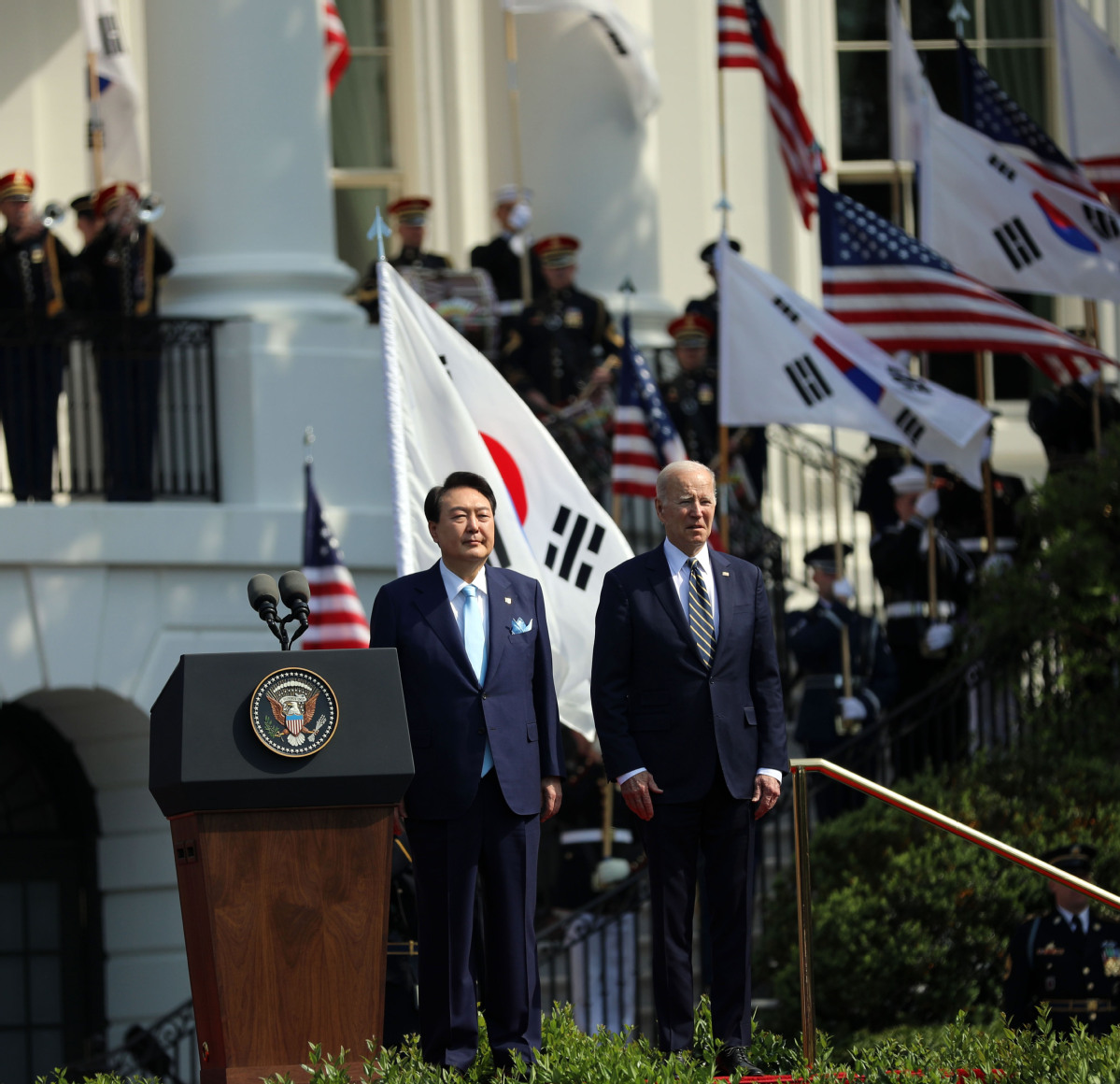
US President Joe Biden and the Republic of Korea President Yoon Suk-yeol at an arrival ceremony on the South Lawn of the White House on April 26. [Photo by Zhao Huanxin/China Daily]
This is an editorial from China Daily.
Republic of Korea President Yoon Suk-yeol has returned from a six-day state visit to the United States, a visit which could have far-reaching impacts on the future of his country and that of the region, and perhaps, in some ways, of the world at large.
Judging from the promises he was given and the agreements he reached with the US, Yoon's visit to Washington seems more than rewarding, with his joint statement with US President Joe Biden presenting a blueprint of a closer partnership that ranges from semiconductors all the way to cyberspace.
Notwithstanding the fact that the two countries' alliance turns 70 this year, the same documents and agreements which Yoon claims as a bountiful harvest appear to be potentially lethal, which could significantly compromise the ROK's economic future. Inside the ROK, for instance, there has been complaint that Yoon may have just signed an ROK-edition of the Plaza Accord, submitting their country's semiconductors, among other things, to US control.
The reference to the Plaza Accord signed by the United States, Japan, France, Germany and the United Kingdom may be premature. But the accord on joint intervention in the foreign exchange market to address astronomical US trade deficits is widely seen as the root cause of Japan's decades-long economic stagnation, known as the "lost decades".
Yoon's visit to the US will no doubt accelerate the paces of ROK-US and ROK-Japan-US cooperation, which could be conducive to the ROK's post-pandemic recovery, except that the partnerships being forged are exclusive. Not to mention they are increasingly geopoliticized to serve the US' overriding "Indo-Pacific" strategy, which is aimed at curbing China's peaceful rise. The new US-ROK deal may now contain, if not fully cut off, the ROK's mutually beneficial trade with China in accordance with the US' design.
As for semiconductors, the ROK is one of the world's largest semiconductor producers while China is one of the biggest semiconductor importers. Denying China access to advanced ROK semiconductors may serve Washington's strategic purpose well but will deal a massive blow to the ROK economy, apart from poisoning the ROK's overall relations with China, which have generally been harmonious and productive for decades.
At the 23rd meeting of the finance ministers and central bank governors of the ROK, Japan and China which opened on Tuesday, ROK Deputy Prime Minister and Minister of Economy and Finance Choo Kyung-ho emphasized that trilateral cooperation may become a new engine for rapid, sustainable global recovery. But the outcome of Yoon's US visit tells a different story, for he has allowed the ROK to be sucked further into the US' "Indo-Pacific" strategy to contain China.

 中文
中文



